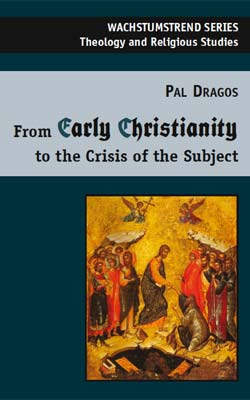
Early Christianity required a particular type of Subject-formation of its believers. Church organizations’ expectant stance in relation to their believers has essentially not shifted over time. Yet the reproduction of Subject-formation in our time is becoming more and more difficult, given that tendencies of hardening and dissolution are leading towards the decomposition of the Subject. This development must also be understood in the context of a massive decline in the number of churchgoers.
The author argues that a critical theology and up-to-date religious studies must become conscious of the role of the Subject in the history of Christianity, if it is adequately to confront its current crisis.
The latent dualisms in the classic model of Subject-formation – which can be traced back to the influence of the Jewish faith – should be overcome through a renewed emphasis on charity. The churches must rethink their role as the ‘manager of sins’ and reconsider their focus on the performance of punishment. The dialectical conciliation of Unity and Difference – in the sense of a Christian anthropology – is the goal of the coming Christian community.
